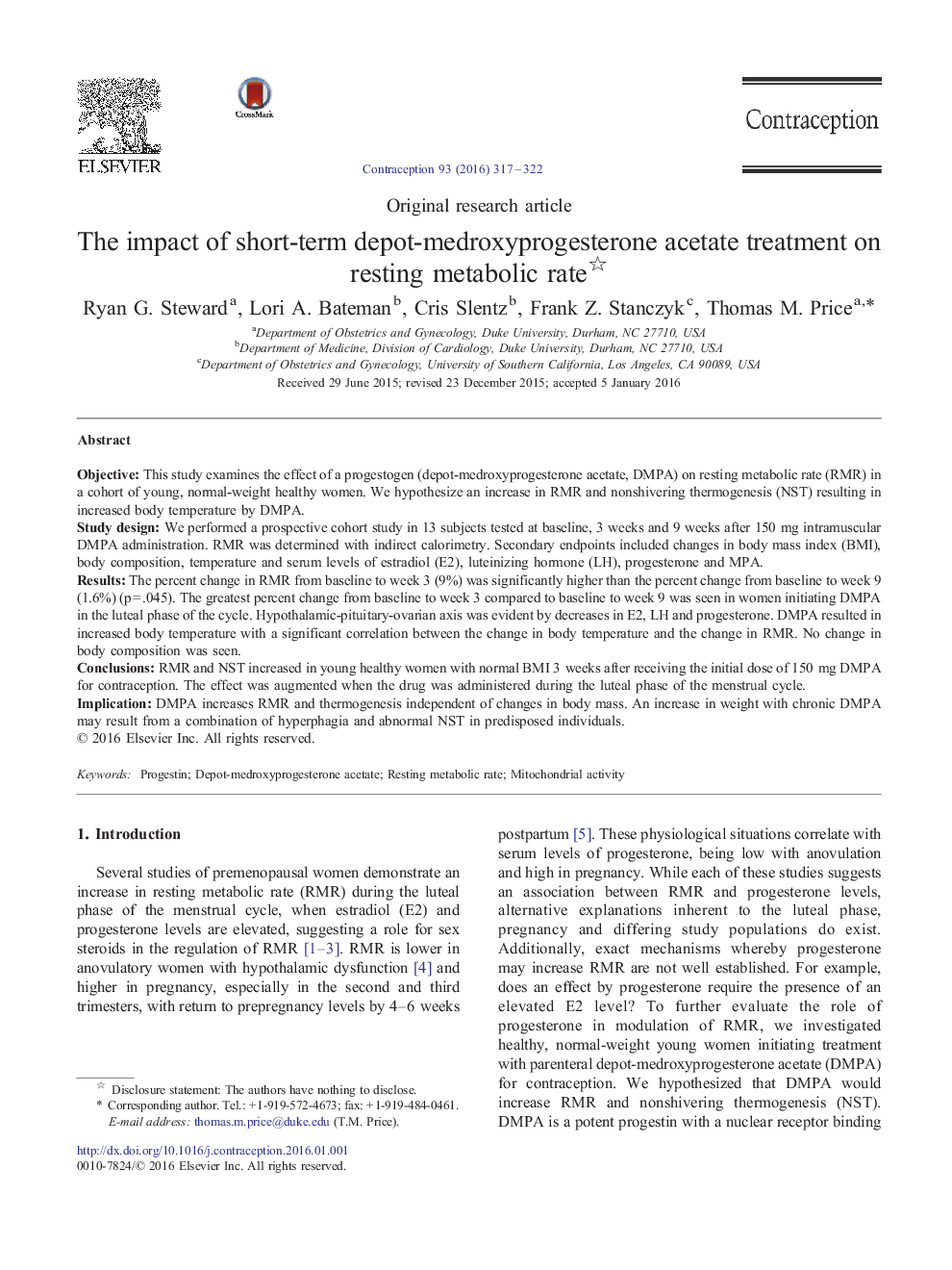| Article ID | Journal | Published Year | Pages | File Type |
|---|---|---|---|---|
| 6170748 | Contraception | 2016 | 6 Pages |
ObjectiveThis study examines the effect of a progestogen (depot-medroxyprogesterone acetate, DMPA) on resting metabolic rate (RMR) in a cohort of young, normal-weight healthy women. We hypothesize an increase in RMR and nonshivering thermogenesis (NST) resulting in increased body temperature by DMPA.Study designWe performed a prospective cohort study in 13 subjects tested at baseline, 3 weeks and 9 weeks after 150 mg intramuscular DMPA administration. RMR was determined with indirect calorimetry. Secondary endpoints included changes in body mass index (BMI), body composition, temperature and serum levels of estradiol (E2), luteinizing hormone (LH), progesterone and MPA.ResultsThe percent change in RMR from baseline to week 3 (9%) was significantly higher than the percent change from baseline to week 9 (1.6%) (p = .045). The greatest percent change from baseline to week 3 compared to baseline to week 9 was seen in women initiating DMPA in the luteal phase of the cycle. Hypothalamic-pituitary-ovarian axis was evident by decreases in E2, LH and progesterone. DMPA resulted in increased body temperature with a significant correlation between the change in body temperature and the change in RMR. No change in body composition was seen.ConclusionsRMR and NST increased in young healthy women with normal BMI 3 weeks after receiving the initial dose of 150 mg DMPA for contraception. The effect was augmented when the drug was administered during the luteal phase of the menstrual cycle.ImplicationDMPA increases RMR and thermogenesis independent of changes in body mass. An increase in weight with chronic DMPA may result from a combination of hyperphagia and abnormal NST in predisposed individuals.
